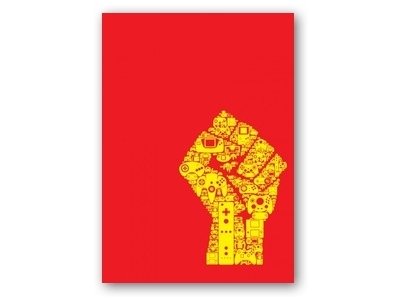Capital as Power
Bichler, Shimshon and Nitzan, Jonathan.
(2012).
Philosophers for Change. 29 May.
(Article - Magazine; English).
![[thumbnail of 20120528_bn_capital_as_power_philosophers_for_change_front.jpg]](/333/1.hassmallThumbnailVersion/20120528_bn_capital_as_power_philosophers_for_change_front.jpg)  Preview |
Cover Image
20120528_bn_capital_as_power_philosophers_for_change_front.jpg Download (30kB) | Preview |
Preview |
PDF (Full Text)
20120528_bn_capital_as_power_philosophers_for_change.pdf Download (2MB) | Preview |
|
HTML (Full Text)
20120528_bn_capital_as_power_philosophers_for_change.htm Download (258kB) |
Alternative Locations
https://philosophersforchange.org/2012/05/29/capital-as-power/
Abstract or Brief Description
[THIS ARTICLE APPEARED PREVIOUSLY AS TWO SEPARATE PAPERS: "CAPITAL AS POWER: TOWARD A NEW COSMOLOGY OF CAPITALISM" (2010) AND "DIFFERENTIAL ACCUMULATION" (2011)]
Conventional theories of capitalism are mired in a deep crisis: after centuries of debate, they are still unable to tell us what capital is. Liberals and Marxists think of capital as an economic entity that they count in universal units of utils and abstract labor, respectively. But these units are totally fictitious: they can be neither observed nor measured. They don’t exist. And since liberalism and Marxism depend on these non-existing units, their theories hang in suspension. They cannot explain the process that matters most – the accumulation of capital.
This breakdown is no accident. Every mode of power evolves together with its dominant theories and ideologies. In capitalism, these theories and ideologies originally belonged to the study of political economy -- the first mechanical science of society. But the capitalist mode of power kept changing, and as the power underpinnings of capital became increasingly visible, the science of political economy disintegrated. By the late nineteenth century, with dominant capital having taken command, political economy was bifurcated into two distinct spheres: economics and politics. And in the twentieth century, when the power logic of capital had already penetrated every corner of society, the remnants of political economy were further fractured into mutually distinct social sciences. Nowadays, capital reigns supreme – yet social scientists have been left with no coherent framework to account for it.
The theory of Capital as Power offers a unified alternative to this fracture. It argues that capital is not a narrow economic entity, but a symbolic quantification of power. Capital has little to do with utility or abstract labor, and it extends far beyond machines and production lines. Most broadly, it represents the organized power of dominant capital groups to reshape -- or creorder -- their society.
This view leads to a different cosmology of capitalism. It offers a new theoretical framework for capital based on the twin notions of dominant capital and differential accumulation, a new conception of the state of capital and a new history of the capitalist mode of power. It also introduces new empirical research methods – including new categories; new ways of thinking about, relating and presenting data; new estimates and measurements; and, finally, the beginning of a new, disaggregate accounting that reveals the conflictual dynamics of society.
Language
EnglishPublication Type
Article - MagazineKeywords
abstract labour capital capitalization finance political economy power price production science state utility valueSubject
BN LawBN Civilization & Social Systems
BN Theory
BN Data & Statistics
BN Cooperation & Collective Action
BN Civil Society
BN Institutions
BN Power
BN International & Global
BN Culture
BN Region - North America
BN Business Enterprise
BN Value & Price
BN Crisis
BN Production
BN Macro
BN Myth
BN Money & Finance
BN Conflict & Violence
BN Science & Technology
BN History
BN Ideology
BN Methodology
BN Distribution
BN Philosophy
BN Agency
BN Micro
BN Capital & Accumulation
BN Class
Depositing User
Jonathan NitzanDate Deposited
29 May 2012Last Modified
12 May 2025 01:11URL:
https://bnarchives.net/id/eprint/333Actions (login required)
 |
View Item |
